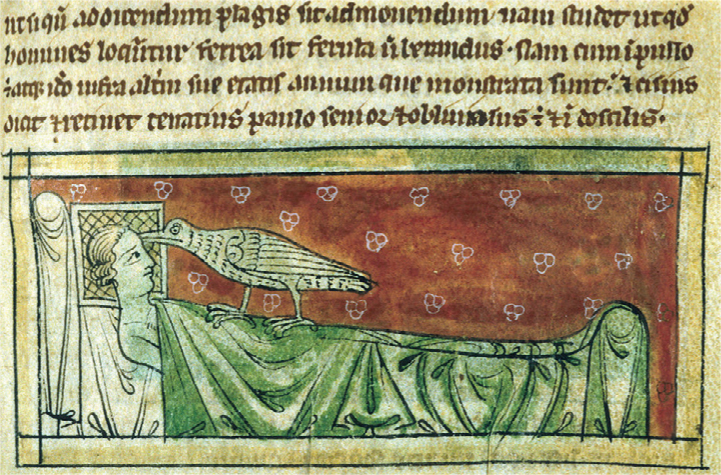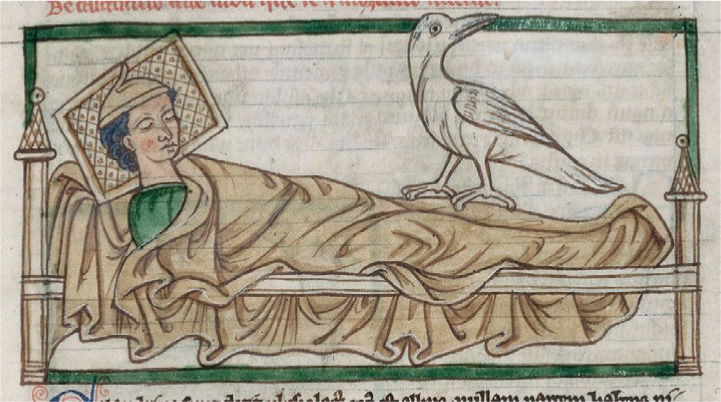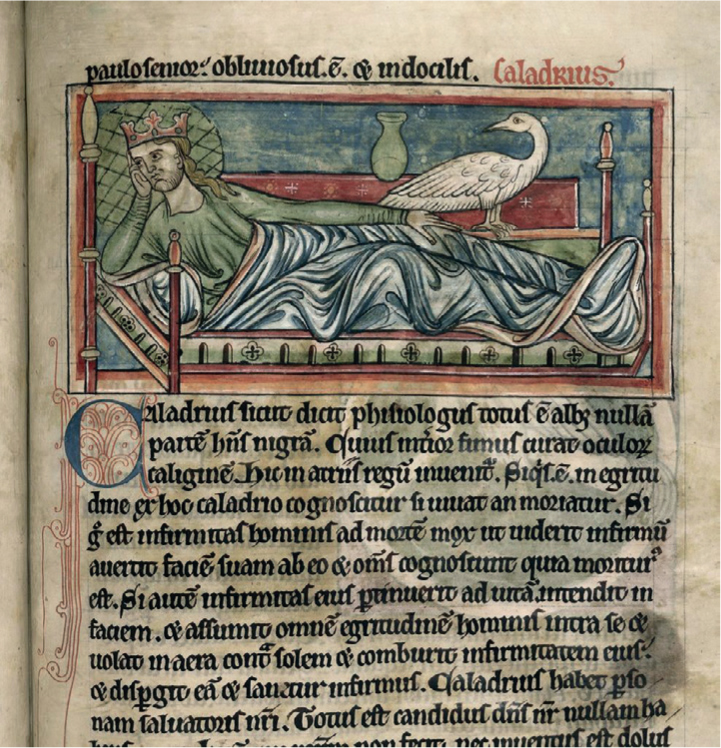According to Roman mythology and the later medieval bestiaries, the Caladrius was a bird with amazing medical abilities. This particular avian is described as pure white, and if we are to believe these medieval documents, was often to be found in the house of the King.
The bird was brought out to assess the sick and injured in their beds. If the bird approached the patient, staring into their eyes, the patient would live, as the Caladrius would siphon the illness from them, and then fly into the fresh air where the illness was dispersed. If, however, the Caladrius turned its back on the patient, they were doomed and would die from their illness.
It appears the Caladrius was essentially used as a point-of-care diagnostic test. Although the specificity appears to be high, in that the bird was known to specifically predict death, it is unclear from the documents available what the sensitivity or reliability were, and further research is probably warranted in this area. One could consider the Caladrius a gothic point-of-care lactate monitor—but with more feathers.




